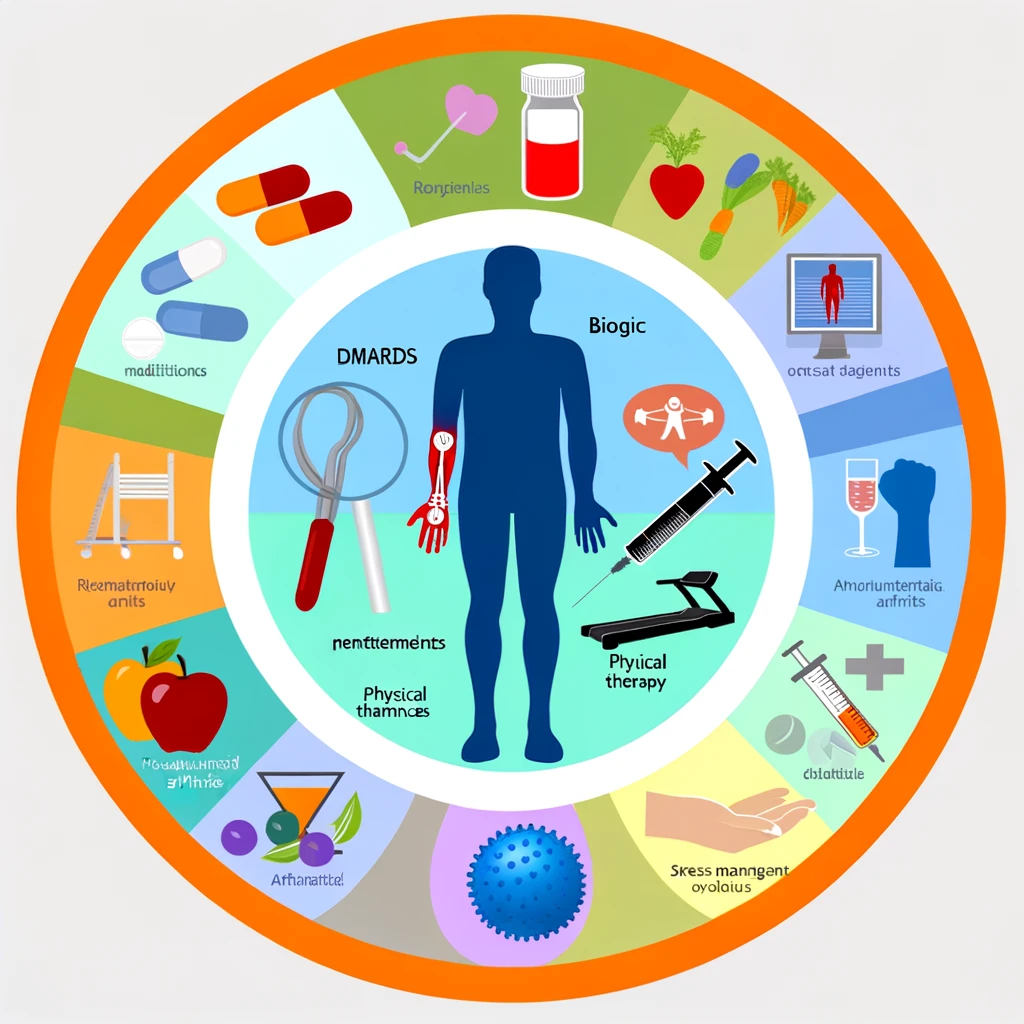Rheumatoid arthritis (RA) is a chronic autoimmune disease that primarily affects the joints, leading to inflammation, pain, and eventually joint damage if untreated. Unlike osteoarthritis, which results from wear and tear of the joints, RA affects the lining of the joints, causing a painful swelling that can eventually result in bone erosion and joint deformity. Over the years, significant advances have been made in the treatment of RA, offering hope and improved quality of life for many patients. This article explores the latest and most effective strategies for managing rheumatoid arthritis.

Understanding Rheumatoid Arthritis
RA is more than just a disease of the joints; it can also affect other organs in the body, indicating the need for a comprehensive treatment approach. Early diagnosis and aggressive treatment are crucial for managing RA effectively. Treatment aims to reduce joint inflammation, relieve pain, prevent or slow joint damage, improve physical function, and overall well-being.
Conventional DMARDs: The Foundation of RA Treatment
Disease-modifying antirheumatic drugs (DMARDs) remain the cornerstone of RA treatment. Traditional DMARDs like methotrexate, sulfasalazine, and hydroxychloroquine are often the first line of treatment. These drugs can slow the progression of RA and save the joints and other tissues from permanent damage. Early and aggressive treatment with DMARDs can significantly improve long-term outcomes for many patients.
Biologic Agents and JAK Inhibitors: Targeted Therapies
The introduction of biologic agents has revolutionized RA treatment. These drugs, including tumor necrosis factor (TNF) inhibitors, interleukin-6 (IL-6) receptor blockers, and B-cell inhibitors, target specific parts of the immune system that fuel inflammation in RA. Janus kinase (JAK) inhibitors are another class of medication effective in treating RA by blocking specific pathways involved in the immune response. These targeted therapies can be more effective than traditional DMARDs, especially for patients who have not responded adequately to conventional treatments.
Physical Therapy and Lifestyle Modifications
Alongside medication, physical therapy plays a critical role in managing RA. A tailored exercise program can help maintain joint flexibility and muscle strength, reducing the overall impact of RA on daily life. Occupational therapy can provide practical solutions for protecting joints and conserving energy during daily tasks. Lifestyle modifications, including diet changes and stress management techniques, can also support overall health and potentially reduce RA flare-ups.
Surgical Options for Advanced RA
In cases where RA has caused significant joint damage, surgical interventions may be necessary. Procedures such as synovectomy, tendon repair, joint fusion, or total joint replacement can relieve pain, correct deformities, and restore function to the affected joints.
Emerging Treatments and Research
The field of RA treatment is continuously evolving, with ongoing research into new medications and therapies. Stem cell therapy, immunotherapy, and personalized medicine approaches hold promise for future RA management strategies. Clinical trials are crucial for developing these innovative treatments.
Conclusion
The management of rheumatoid arthritis has seen remarkable advancements, transforming the outlook for many patients. From traditional DMARDs to biologic agents and beyond, the range of treatment options continues to expand, offering hope for reduced symptoms and slowed disease progression. By combining medication with physical therapy and lifestyle changes, individuals with RA can lead active, fulfilling lives. As research progresses, even more, effective treatments are on the horizon, promising a future where RA’s impact is minimized further.




